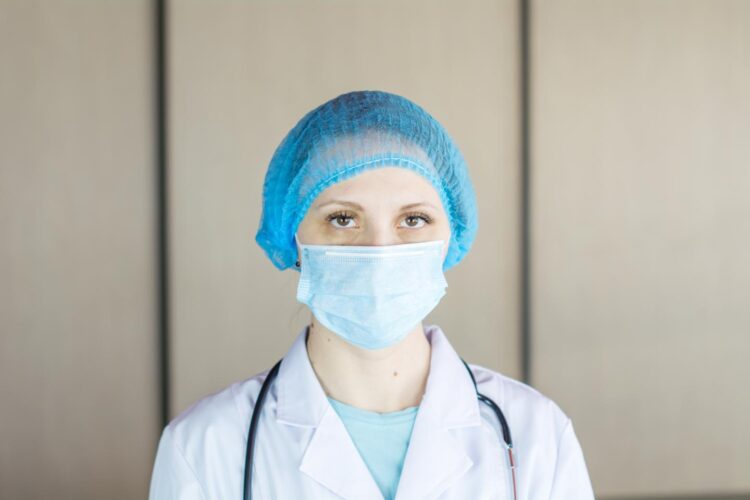An Australian-led study will investigate whether it’s possible to predict who remains susceptible to SARS-CoV-2 variants after having COVID-19 or receiving a COVID-19-specific vaccine.
The study will explore the immune response to COVID-19-specific vaccines in Brazilian healthcare workers to find biomarkers that indicate whether someone will be protected from – or remains at risk of – contracting COVID-19 if exposed to a variant.
The research has received philanthropic funding from the Bill & Melinda Gates Foundation and is a sub-study of the Murdoch Children’s Research Institute’s (MCRI) study assessing if the Bacille Calmette-Guérin (BCG) vaccine can help protect against COVID-19.
The BRACE trial is now the world’s largest study on the off-target effects of the BCG vaccine. Since the trial launched in March 2020, more than 6800 healthcare workers have enrolled across 36 sites in Australia, Brazil, the Netherlands, Spain and the UK.
BCG was originally developed 100 years ago to prevent tuberculosis. Now, the BRACE randomised controlled clinical trial is working to determine if the BCG vaccine reduces the incidence of symptomatic and severe COVID-19 in healthcare workers. It is also investigating whether BCG vaccine reduces the impact of other respiratory illnesses and allergic diseases.
Professor Nigel Curtis, Head of the Infectious Diseases Research Group at MCRI, Professor of Paediatric Infectious Diseases at the University of Melbourne and BRACE Chief Principal Investigator, said the big story of 2021 was the potential impact of SARS-CoV-2 variants.
“With the emergence of new variants – for which vaccine-induced and natural immune responses may not be as effective – there is concern that herd immunity may be undermined. If this happens, SARS-CoV-2 will continue to spread and cause disease,” he said.
“We have been lucky enough to receive this additional funding for the BRACE COVID-19-Specific vaccine sub-study (BCOS) to investigate biomarkers of protection against SARS-CoV-2 infection and reinfection induced by natural infection and COVID-specific vaccination.”
Associate Professor Julio Croda, the BRACE trial’s Brazil Principal Investigator, said 2400 healthcare workers across three trial sites in Brazil were being actively followed up and tested for COVID-19 as part of the trial.
“This subset of participants provides a unique opportunity to understand the risks and determinants of susceptibility to reinfection with SARS-CoV-2 variants, particularly the P.1 variant. This research is critical to designing effective approaches to help protect people,” he said.
With COVID-19-specific vaccines now available to healthcare workers, BCOS will also look at whether BCG vaccine improves the immune response to Pfizer, AstraZeneca and CoronaVac vaccines.
Dr Nicole Messina, the Biosample and Laboratory Lead on the BRACE trial said: “We are recruiting existing BRACE trial participants in Victoria, South Australia and Brazil to assess whether those who had the BCG vaccine have a better or more prolonged immune response to their COVID-19-specific vaccine.”
Professor Kathryn North AM, MCRI Director, said: “It’s incredibly exciting work and demonstrates how MCRI responded to the pandemic. A deeper understanding of immune responses to COVID-19-specific vaccines will be important to the global effort to contain this pandemic.”
The BRACE trial has received philanthropic funding from the Bill & Melinda Gates Foundation, Sarah and Lachlan Murdoch, Minderoo Foundation, The Royal Children’s Hospital Foundation, South Australian government, NAB Foundation, The Calvert Jones Foundation, UHG Foundation, Modara Pines Charitable Foundation, Health Services Union NSW, Peter Sowerby Foundation, South Australia Ministry of Health, Epworth Health, Swiss National Science Foundation and individual donors.
###
BRACE audio grabs, video and images available for download
Available for interview
Professor Nigel Curtis
BRACE trial Chief Principal Investigator
Head of the Infectious Diseases Research Group at the Murdoch Children’s Research Institute
Professor of Paediatric Infectious Diseases at The University of Melbourne
Head of Infectious Diseases at The Royal Children’s Hospital Melbourne
Dr Nicole Messina
Biosample and Laboratory Lead on the BRACE trial at the Murdoch Children’s Research Institute
Honorary Fellow, Department of Paediatrics, Melbourne Medical School at The University of Melbourne
Media Contact
Harriet Edmund
[email protected]





